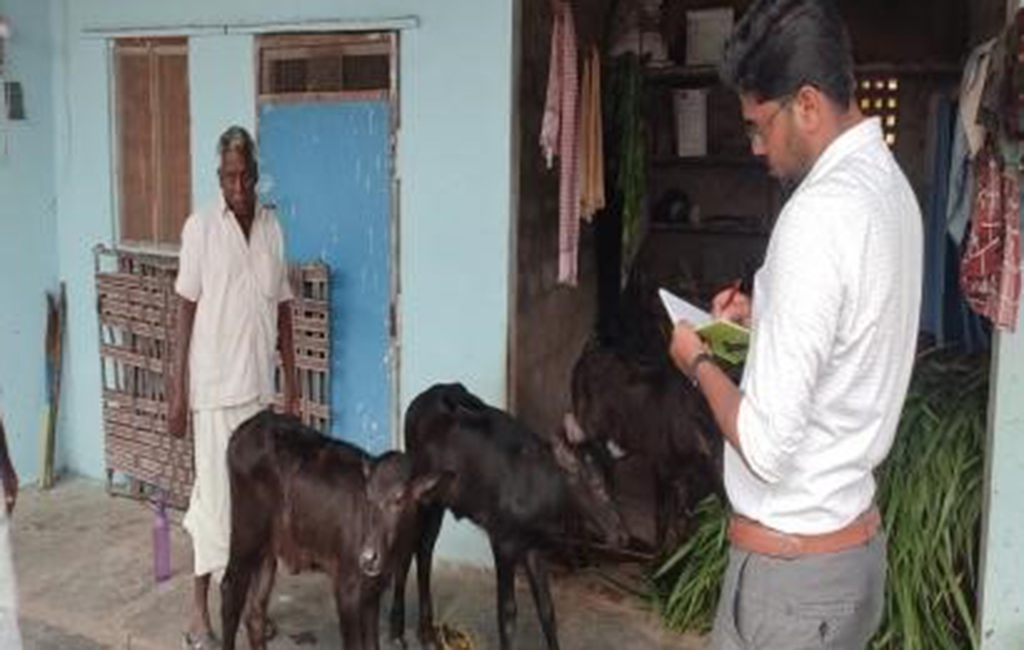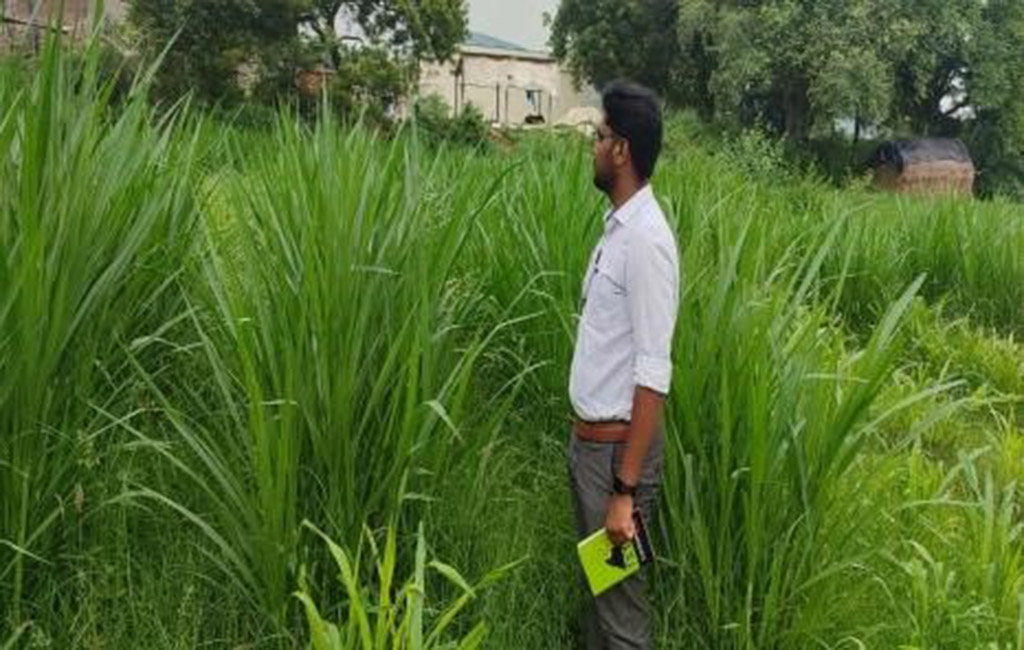
How technology delivers more female calves, boosts dairy business in Guntur
Thanks to sex-sorted semen insemination, 90% of the new cattle born in Andhra Pradesh’s Guntur district are female, making dairying lucrative for farmers.

Thanks to sex-sorted semen insemination, 90% of the new cattle born in Andhra Pradesh’s Guntur district are female, making dairying lucrative for farmers.
As science and modern equipment are used more and more in agriculture, bullocks are no longer considered important.
In the traditional system of insemination 50% of the calves born are male. This makes dairy farming unviable.
The birth of a male calf is not only a burden for the dairy farmer since he has to feed the under-productive male cattle, but it’s also a wasted reproduction cycle.
But is it possible to change this so that more female calves are born?
The BAIF Institute of Sustainable Livelihood and Development (BISLD)-AP and the National Bank for Agriculture and Rural Development (NABARD) think so. Together they launched an ambitious pilot project in Guntur district of Andhra Pradesh to achieve a higher ratio of female calves.
The sex sorted semen (SSS) insemination technology achieves almost 90% female calves. This helps in increasing the milk production and reducing the burden of unviable male calves, making dairying viable for farmers and increasing the milk in the pool.
Guntur being agriculturally vibrant is an important district in Andhra Pradesh. And animal husbandry is one of the important activities for farmers.
Guntur has a total geographical area of 11.39 lakh hectare (ha), gross cropped area of 8.18 lakh ha, net sown area of 6.39 lakh ha and a net irrigated area of 4.34 lakh ha.
Also Read | Dairy farming in tribal regions holds enormous promise
It has a cattle population of around 13.3 lakh, of which 1.32 lakh are cows. Buffaloes are predominant in the area. Private dairies present in large numbers absorb the additional milk production.

Given the dairy scenario, Guntur was selected for the pilot project. It was implemented in 30 villages from February 2020 to December 2021.
NABARD has a strong network of farmer producer organisations (FPOs) in the area. It was decided to collaborate with these FPOs as it would help the project, while also helping the farmers generate extra income. The team conducted 40 meetings with members of the FPOs.
The team conducted 47 awareness and orientation programmes for the farmers. It was important to make them understand the importance of sex sorted semen insemination technology as it has a 90% chance of resulting in the birth of a female calf.
While care of pregnant animals is the most crucial part of dairying, the farmers were made to understand that the care of newborn calves born out of SSS insemination technology is equally crucial to minimise calf mortality.
The training sessions covered animal health management in terms of clean and safe milk production, disease prevention and risk mitigation.
The skill level of 626 farmers was enhanced with respect to the SSS advanced breeding technology.
When it comes to feed and fodder management, during the training sessions the farmers learned about cultivating improved leguminous, non-leguminous and grass fodder varieties.
Also Read | A dairy farmer by chance
Farmers with adequate water availability and intent – with support under the fodder promotion programme of BISLD and NABARD – developed demonstration fodder plots.
High-yielding Bajra Napier fodder variety was introduced in the 8-acre demonstration plot, triggering other farmers in the surrounding villages to opt for the same.
This has resulted in growing this fodder variety in a radius of around 15 km from the project location. Currently, almost 30 acres of fodder plots are established in the surrounding villages.
Besides having sufficient fodder for their animals, they will have surplus to sell to other interested farmers.
In the SSS insemination technology, best results can be achieved if the animals have a healthy reproductive system.

So 40 screening camps were organised in the project villages to identify healthy animals suitable for breeding.
The sex sorted semen insemination project achieved the target of 600 inseminations from August 2020 till October 2021.
Of these, 248 animals were declared pregnant. And 170 female and 11 male calves have been born so far.
Also Read | The story of the migrating, dairy-farming Gujjars
The female calves have the potential to produce 4,000 – 4,500 litres of milk per animal per lactation.
The results have increased the farmers’ confidence, which in turn would boost dairying in the days ahead.
The days of unviable dairying is going to be a thing of the past, as the SSS technique would increase the farmers’ income.
It would decrease the male (bull) population in the region, drastically reducing the incidence, transmission and occurrence of genital and reproductive diseases/disorders in the female herd.
Reduced male animal population would ultimately reduce methane generation, contributing in environment protection in the long run.
Though the project has a subsidy provision, the outcome in terms of the number of female calves born would be proof enough for the other farmers in the region to get SSS service without any subsidy.
It is evident that the technique has the potential to improve the economy of farmers at micro level, while contributing to the national economy at a larger scale. It is crucial since agriculture and animal husbandry form the backbone of India’s economy.
The lead image shows female calves born successfully after the use of sex sorted semen insemination technology (Photo by Manikandan S)
Manikandan S works at the BAIF Institute of Sustainable Livelihood and Development.